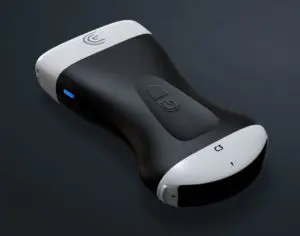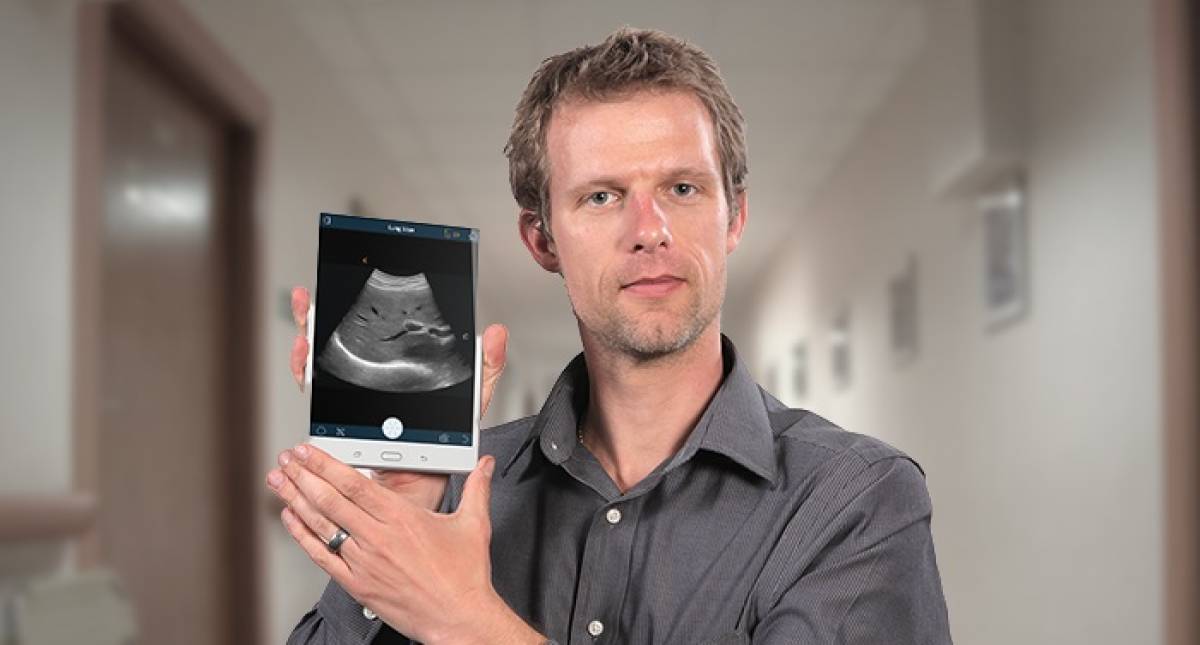In the world of pharmaceuticals, the term off-label applies to patients taking medication to treat conditions not specified in the drug’s approval by the national regulator.
According to WebMD, it’s legal and quite common, with one in five prescriptions being done in that way.
Now, a Burnaby-based tech company’s medical device is suddenly being used in to combat COVID-19, even though this disease was not on anyone’s radar when the product was being developed.
In 2016, Clarius Mobile Health’s ultrasound scanners were approved by Health Canada to enable clinicians to gather images quickly at the bedside.
„The Clarius C3 multipurpose ultrasound scanner is designed to image the abdomen and lungs; it also incorporates a virtual phased array for quick scans of the heart,“ the company states on its website. „The Clarius L7 is ideal for guiding procedures and imaging superficial structures.“
This year, in response to the COVID-19 pandemic, Clarius learned that its device is now frequently being used to check patients‘ lungs for acute pneumonia, which is a symptom of severe cases of the disease.
That’s led to surging demand for these mobile tools. Images of these lung scans are available on the Clarius website.
The vice president of research and development at Clarius Mobile Health is Kris Dickie, a BCIT grad in biomedical engineering technology.
“With so many industries around the world facing challenges, our team feels extremely grateful to be part of a solution that is helping to save lives,” Dickie said in a BCIT news release. “Never in my 20 years developing ultrasound technology have I seen such a sudden upsurge in the need for portable diagnostic equipment.”
The technology was developed in Metro Vancouver and the starting price of these devices is $6.500 per unit.
That makes them far more affordable than large ultrasound machines, which can go for $100,000, making them an appealing choice not only in western industrialized countries but also in the developing world.
Dickie is a member of BCIT’s biomedical engineering advisory committee. And now, the mobile ultrasound tool that he helped develop will assist future students in their learning, according to Anthony Chan, the school’s biomedical engineering technology program head.
“Kris’s company is home grown, and there’s now a big demand for simple, easy-to-use handheld devices like his,” Chan says. “We are looking forward to using these devices in our medical imaging courses.”


